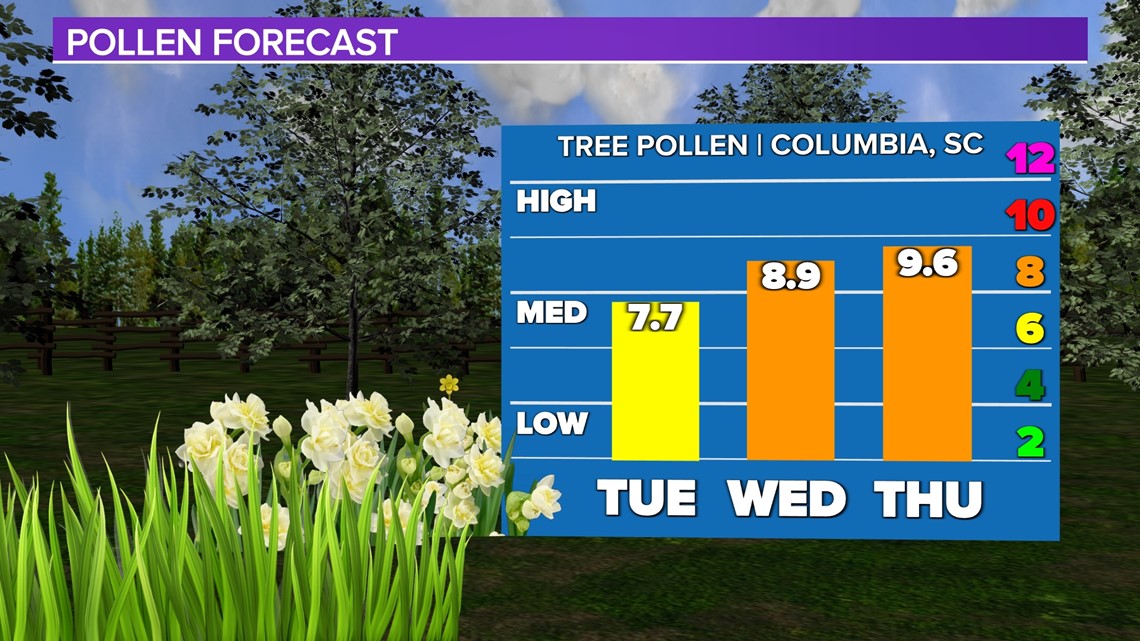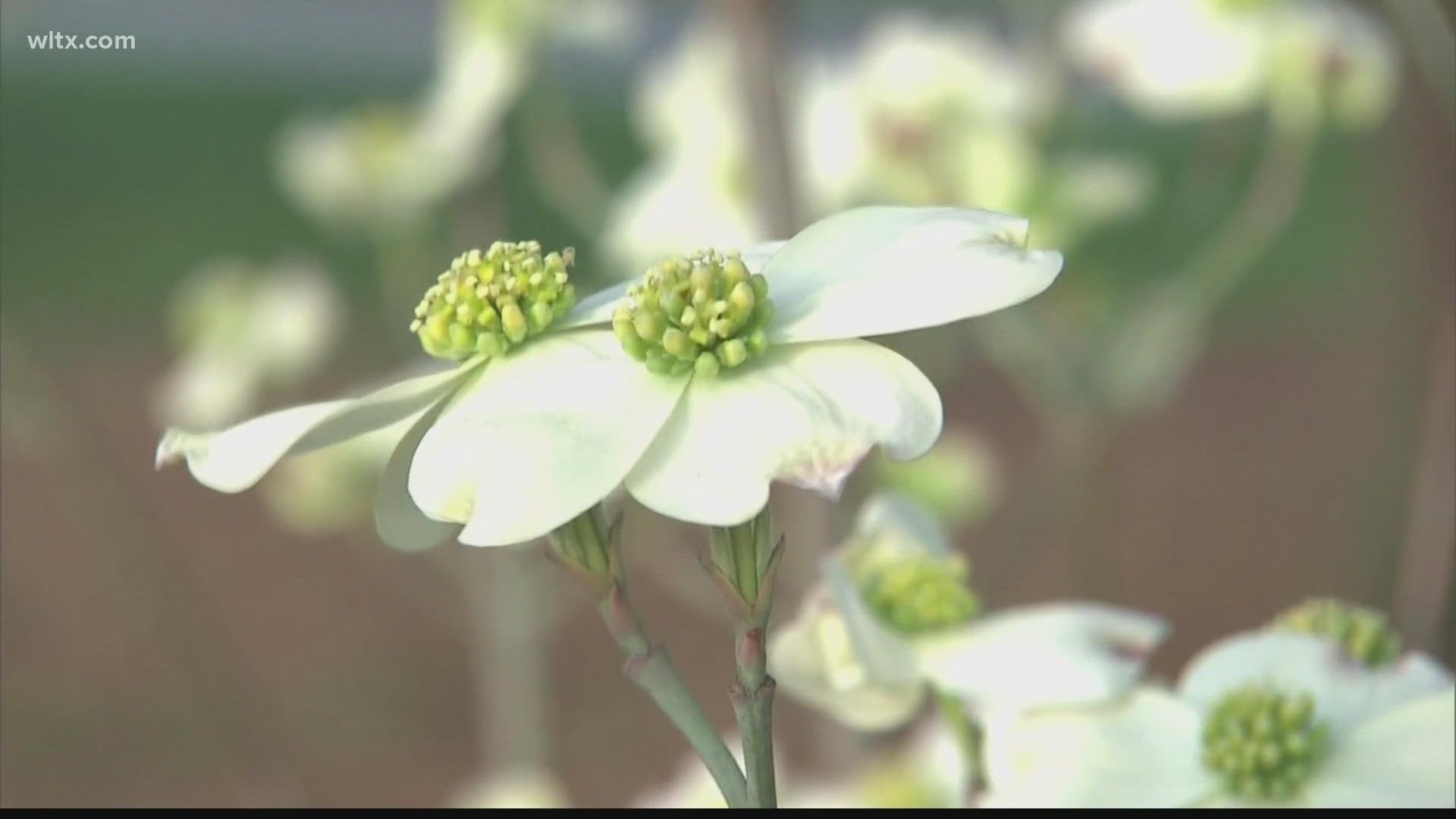COLUMBIA, S.C. — We have seen 7 days so far this year already in the 70s and we are looking at more of that type of weather on the way this week. Plants in the region have taken this as a sign to bloom and that means pollen season has arrived.
Warm temperatures and spring flowers have already arrived in the Midlands. Along with that so has the return of allergy season. The National Phenology Network says this activity arrived early this year by almost 2 weeks, a trend we have seen more often. Plants rely on warmer temperatures to start their spring growth.

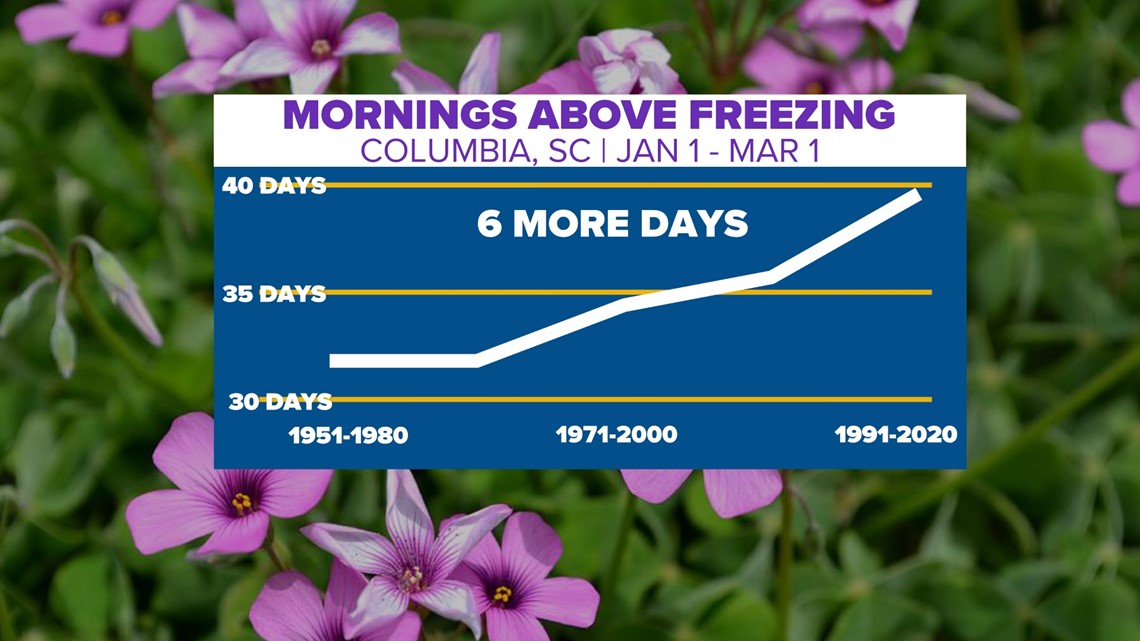
Looking back at historical data, we are seeing on average almost 6 days more that start above freezing, and when it comes to our daytime highs, our first 80-degree day is occurring over a week earlier than it used to. These are all symptoms of our warming winters and our warming climate.

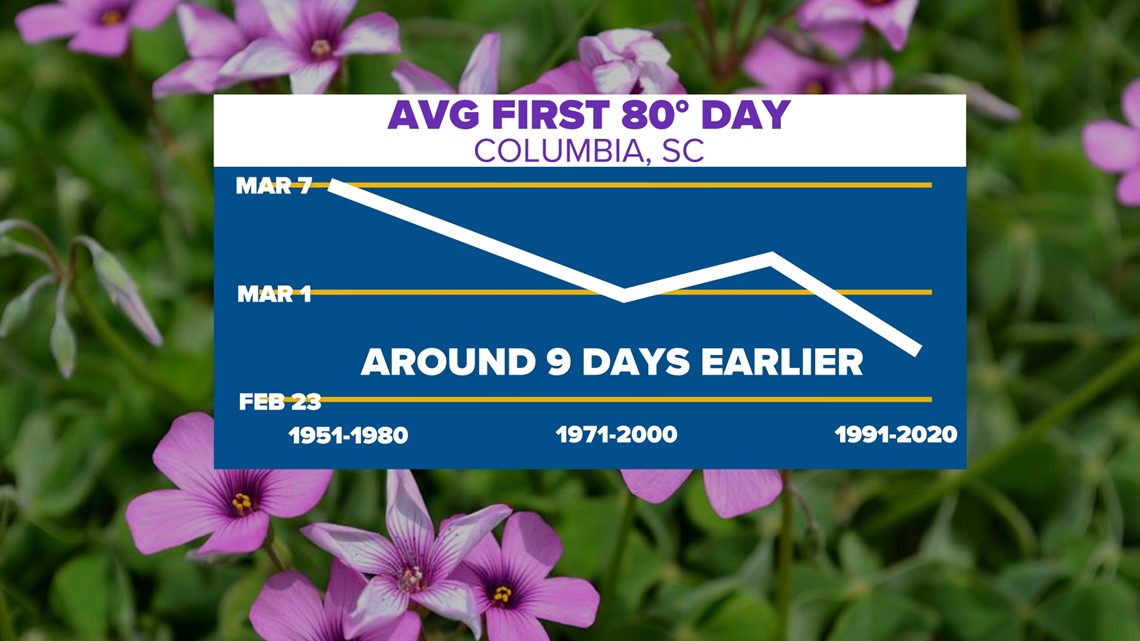

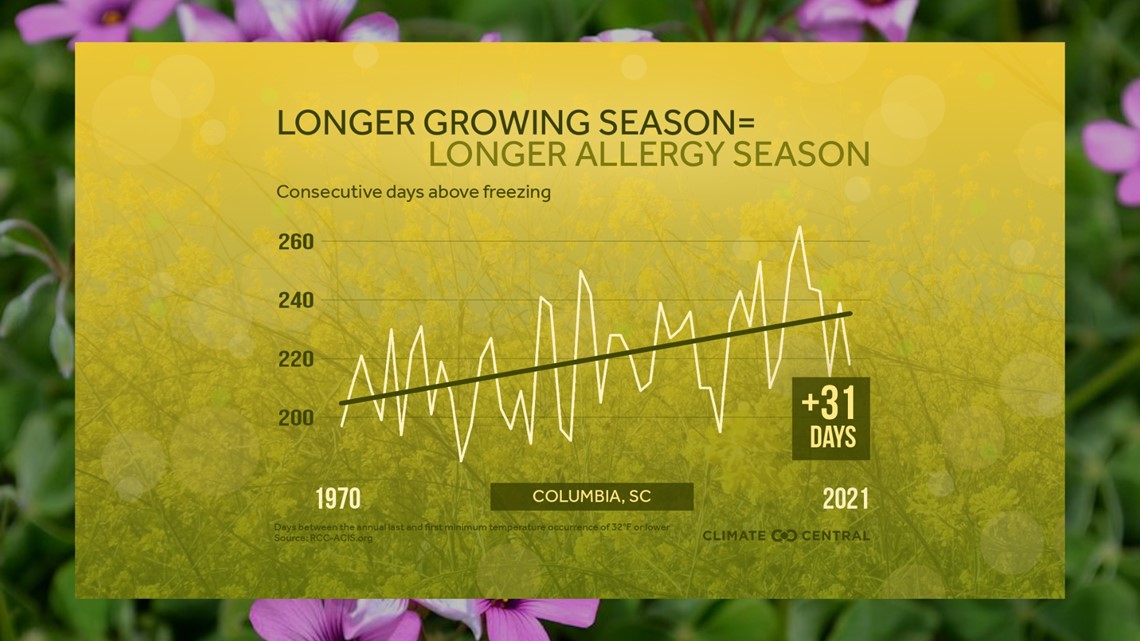
Our Partners at Climate Central show that allergy season has been getting longer by close to a month compared to 1970 thanks to prolonged warmer weather that allows these plants to be active when they normally wouldn’t have been.
As CO2 emissions continue to rise grass pollens could potentially double compared to 2000 levels as soon as the year 2060.

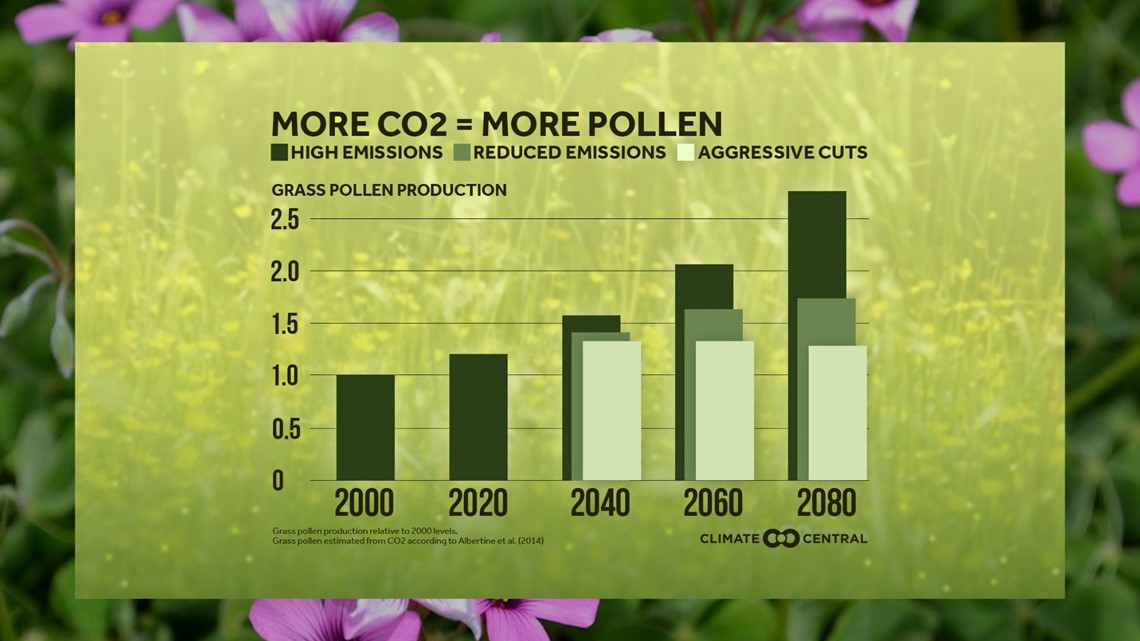
What this means for you, more sniffling and sneezing for more of the year.
Going back to what we can expect soon, high pressure will be ushering temperatures approaching the upper 70s this week and pollen levels will reflect that. Tree pollen is expected to reach the middle-high category by this Thursday.

